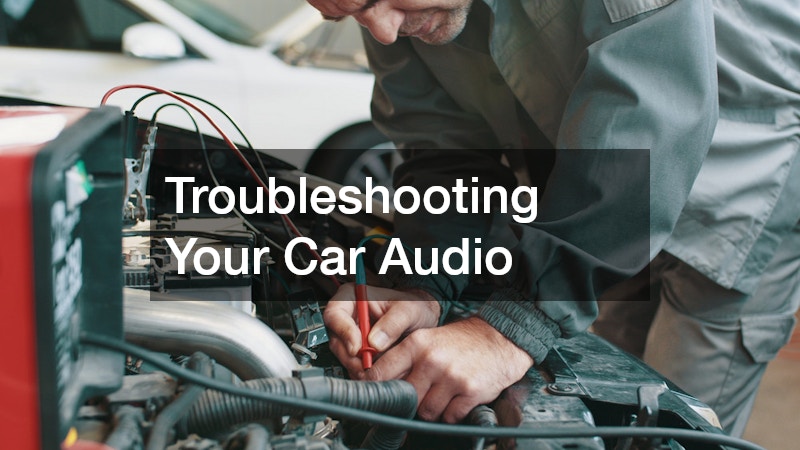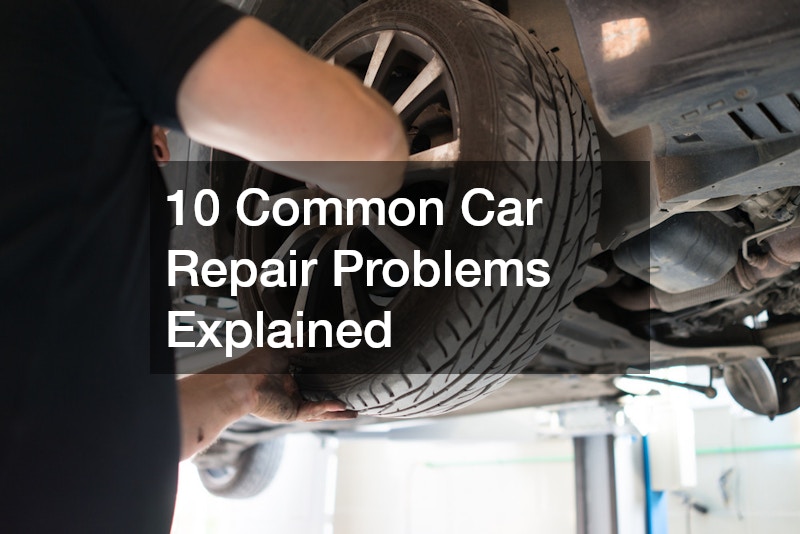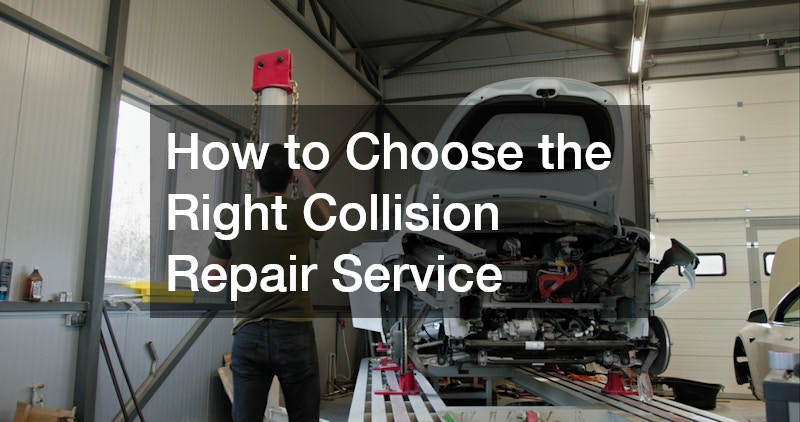Maintaining the functionality and reliability of your vehicle is crucial for safety and performance. Understanding the signs that your vehicle needs assistance can save you time and money in the long run. In this article, we’ll outline important areas of concern, including common car issues, window tinting problems, and the significance of regular maintenance such as transmission checks and proper diagnostics.
With the complexities of modern vehicles, issues can arise from various systems, and knowing what to look for is the key to effective troubleshooting. By being aware of the signs that indicate potential problems, whether it’s related to your transmission, audio system, or even the fuel injectors, you’ll be better equipped to seek help from qualified professionals at a transmission repair shop or other specialized services. Moreover, understanding these aspects can help you avoid more extensive repairs and ensure your vehicle is always roadworthy.
This article serves as a comprehensive guide for vehicle owners, covering everything from transmission troubles to the nuances of car audio systems. As you read through, you’ll gather invaluable insights into the symptoms of mechanical issues, how to troubleshoot them, and when it’s time to seek professional assistance, including the best options for towing and roadside service. By understanding how these elements connect, you can maintain your vehicle in optimal condition and enhance your driving experience.

Signs Your Transmission Needs Help
Your vehicle’s transmission is pivotal for its performance, and noticing early signs of trouble can prevent major issues later on. One of the first indicators that you may need to visit a transmission repair shop is unresponsive gears; sometimes, you may shift into gear but the vehicle does not respond as expected. Additionally, slipping gears can occur, where the transmission unexpectedly shifts out of gear while driving, leading to possible safety risks.
Another common sign of transmission trouble is the presence of strange noises when the vehicle is in gear. Sounds such as clunking or whining can indicate that the transmission is not functioning properly or that the fluid levels are low. Moreover, watch for unwanted fluid leaks underneath your vehicle; dark red or brown fluid can signify transmission issues that warrant immediate attention from a transmission repair shop.
Lastly, warning lights on your dashboard, specifically the transmission fluid temperature or check engine light, shouldn’t be ignored. These alerts often come with codes that can be read by diagnostic tools, providing insight into what might be malfunctioning. Staying vigilant in identifying these signs is crucial in maintaining the health of your transmission and ensuring the longevity of your vehicle.
Problems With Window Tinting
While residential window tinting offers benefits such as privacy and UV protection, issues can occasionally arise that affect both aesthetics and function. One of the most common problems is bubbling or peeling of the tint, which can occur due to improper installation, heat exposure, or aging materials. If you notice bubbles forming or edges lifting, it’s essential to address these areas promptly to prevent further damage.
Another issue involves discoloration; over time, window tints can fade or change color due to prolonged sun exposure or low-quality materials. This not only affects the appearance of your vehicle but can also reduce the effectiveness of the tint in blocking out heat and UV rays. To avoid these complications, always opt for high-quality materials and professional installation services for residential window tinting.
Lastly, improper installation can lead to alignment issues, resulting in uneven or misaligned tinting across your windows. This can create an unsightly look, affecting your vehicle’s aesthetics as well as its resale value. Regular maintenance and addressing these problems early can ensure that your window tint remains effective and visually appealing.
Common Car Issues to Watch For
Every car owner should be aware of common issues that can arise, allowing for proactive maintenance and timely car repair. One of the most prevalent issues is battery failure, which often presents itself when the vehicle struggles to start or has dim headlights. Keeping an eye on your battery’s age and performance can help you avoid being stranded due to a dead battery.
Tire problems, including wear and punctures, also fall under common car issues. Uneven wear can indicate misalignment or improper inflation, which can compromise your safety on the road. Regular rotation, alignment checks, and visual inspections of the wheels can help ensure your vehicle performs at its best.
Another frequent concern involves overheating engines, which can result from low coolant levels or failing thermostats. An overheating engine can lead to severe damage if not addressed promptly, so keeping an eye on your engine temperature gauge is essential, as is having your cooling system serviced regularly. Being aware of these common car issues can significantly extend the lifespan and performance of your vehicle.

Troubleshooting Your Car Audio
Car audio systems enhance the driving experience, but when problems arise, they can be frustrating. One of the most common issues is no sound coming from the speakers, which can result from a blown fuse, faulty wiring, or poor connections. Checking the basics, such as ensuring the volume is up and the source (radio, Bluetooth, etc.) is correctly selected, should always be the first step in troubleshooting.
Another issue is distortion or unclear sound quality, often caused by poor speaker placement or low-quality speakers. Upgrading to better equipment or adjusting speaker settings can sometimes remedy this issue, providing a much better audio experience while driving. Regular maintenance, including cleaning connections and checking for updates on your audio unit, can also enhance performance.
Lastly, compatibility problems between devices and your car audio system can lead to connectivity issues, especially with Bluetooth-enabled devices. Ensuring your device software is updated and that car audio settings are properly configured can resolve many of these frustrations. By addressing these common audio issues, you can enjoy clearer and more consistent sound during your travels.
Wheel Damage and Repairs
Wheels are critical components of vehicle safety and performance, yet they often bear the brunt of road conditions. Common issues include bent rims or cracked wheels that can occur from hitting potholes or curbs. Regular inspections can help identify these issues before they lead to more severe complications, such as air leaks or misalignments.
Another frequent problem is tire wear, which can result from improper alignment, over- or under-inflation, or simply wearing out over time. Uneven tire wear can affect handling and braking, so it’s essential to regularly check tire pressure and alignments. Maintaining proper tire health also extends the lifespan of your wheels, ultimately saving you money on replacements.
During wheel repairs, it’s crucial to consider the balance and alignment, as these aspects affect your vehicle’s ride quality. A professional assessment may be necessary to ensure everything is functioning as it should, enabling you to experience safe and comfortable driving. Keeping your wheels in good condition will not only enhance vehicle performance but also contribute to overall safety on the road.
Fuel Injector Failures Explained
Fuel injector failures can significantly impact your vehicle’s performance and fuel efficiency. Symptoms may include poor acceleration, misfiring, or rough idling, indicating that the injectors are not supplying the correct amount of fuel to the engine. Recognizing these symptoms early can help you take the necessary steps to address the issue, which may include cleaning or replacing the diesel gas injector.
Another telltale sign of fuel injector issues is an increase in fuel consumption. If you find that you’re filling up more frequently, it could be due to inefficient fuel delivery caused by clogged or malfunctioning injectors. Regular maintenance, including fuel system cleaning, can help prevent these problems and keep your engine running smoothly.
In some cases, poor fuel quality can also contribute to injector failures, so it’s important to use high-quality fuel and additives when needed. If you suspect problems with your fuel injectors, it’s advisable to consult professionals who can conduct a thorough diagnostic to determine the extent of the issue. Being proactive about fuel injector care can lead to a better-performing engine and prolong the life of your vehicle.

When You Need Emergency Road Help
Understanding when to call for emergency road service can make all the difference in a challenging situation. If your vehicle breaks down unexpectedly due to mechanical failure, running out of gas, or experiencing a flat tire, it’s crucial to assess the problem before attempting repairs. In many cases, calling for professional road service can provide peace of mind and ensure that proper assistance is on the way.
Another reason to seek emergency help is if you’re involved in an accident, regardless of how minor it may seem. Ensuring the safety of all individuals involved should always be the priority, and sometimes professional assistance is necessary to navigate the aftermath. Emergency road service can also help retrieve your vehicle if it’s immobilized in a difficult location.
Finally, don’t hesitate to call for help if you feel unsafe or uncomfortable attempting repairs alone. Whether it’s at night or in an isolated area, waiting for professional assistance can be a wise choice. Emergency road services are available to provide support, make necessary repairs, or safely transport you and your vehicle to the nearest service center.
Typical Truck Maintenance Problems
Trucks, especially those that handle heavy loads, often face unique maintenance challenges. One common issue is brake wear; due to the increased weight and strain on truck brakes, they may wear out faster than those on regular vehicles. Regular checks and timely replacements can prevent brake failure and enhance overall safety on the road.
Another typical problem is tire blowouts, which are particularly dangerous for trucks due to their size and weight. Monitoring tire pressure, wear, and ensuring proper load distribution can help minimize the risk of blowouts. Furthermore, investing in high-quality tires suited for your specific driving conditions can enhance safety and performance.
Additionally, engine problems such as overheating or oil leaks are prevalent in trucks as well. Regular maintenance checks and keeping an eye on engine performance can help detect early signs of trouble. By addressing these common issues, truck owners can prolong the lifespan of their vehicles and ensure safer driving experiences.
Understanding Vehicle Diagnostics
There are specific situations when calling a tow truck or a diagnostic service truck is the most practical and safest choice. If your vehicle is completely immobile due to a breakdown, a major accident, or a sudden mechanical failure, attempting to drive it can often cause more damage to your car or even pose safety risks to you and other drivers on the road. In these cases, contacting a reliable tow service or diagnostic service truck can ensure that your vehicle is safely transported to a qualified repair facility or properly assessed on site without worsening the issue. Professional tow operators and diagnostic service truck teams have the right equipment and expertise to handle different types of vehicles and breakdowns, minimizing the risk of further damage during transport or diagnosis. Additionally, towing and diagnostic services are often available 24/7, which can be especially helpful in emergencies that occur at night or in remote areas.
Another common scenario is when you experience flat tires, run out of fuel, or suffer other roadside issues that leave you stranded in an inconvenient or unsafe location. If you’re unable to change the tire yourself or quickly refuel, or if it’s unsafe to attempt repairs on the roadside—such as on a busy highway or during inclement weather—it’s advisable to call for a tow to the nearest service station or tire shop. This approach ensures that you remain safe while avoiding the risk of causing additional damage to your vehicle by trying temporary fixes. It also helps to reduce the stress and hassle of being stuck on the side of the road, especially if you’re unfamiliar with the area or traveling alone.
Lastly, if you notice that your vehicle is exhibiting concerning symptoms such as persistent warning lights on the dashboard, unusual noises, overheating, or any other signs of mechanical trouble, it’s wise to err on the side of caution and seek towing services instead of risking driving it further. Transporting your vehicle to a professional mechanic for a thorough inspection can prevent unexpected breakdowns and avoid more extensive and costly repairs down the line. Understanding when to use a tow service can ultimately save you time, money, and ensure your safety and the safety of others while on the road. Being proactive about towing can help protect your vehicle’s longevity and your peace of mind during emergencies, allowing you to address mechanical problems before they escalate into major issues.

When to Call for a Tow
There are specific situations when calling a tow truck is the most practical and safest choice. If your vehicle is completely immobile due to a breakdown, a major accident, or a sudden mechanical failure, attempting to drive it can often cause more damage to your car or even pose safety risks to you and other drivers. In these cases, contacting a reliable tow service can ensure that your vehicle is safely transported to a qualified repair facility without worsening the issue. Professional tow operators have the right equipment and expertise to handle different types of vehicles and breakdowns, minimizing the risk of further damage during transport.
Another common scenario is when you experience flat tires, run out of fuel, or suffer other roadside issues that leave you stranded in an inconvenient or unsafe location. If you’re unable to change the tire yourself or quickly refuel, or if it’s unsafe to attempt repairs on the roadside—such as on a busy highway or at night—it’s advisable to call for a tow to the nearest service station or tire shop. This approach ensures that you remain safe while avoiding the risk of causing additional damage to your vehicle by trying temporary fixes. It also helps to reduce the stress and hassle of being stuck on the side of the road.
Lastly, if you notice that your vehicle is exhibiting concerning symptoms such as persistent warning lights on the dashboard, unusual noises, overheating, or any other signs of mechanical trouble, it’s wise to err on the side of caution and seek towing services instead of risking driving it further. Transporting your vehicle to a professional mechanic for a thorough inspection can prevent unexpected breakdowns and avoid more extensive and costly repairs down the line. Understanding when to use a tow service can ultimately save you time, money, and ensure your safety and the safety of others while on the road. Being proactive about towing can help protect your vehicle’s longevity and your peace of mind during emergencies.
Understanding your vehicle and recognizing the signs that indicate it needs help is essential for any car owner. From transmission issues and audio troubles to window tinting problems and fuel injector failures, being informed enables proactive care and maintenance. Regular diagnostics and timely repairs, including using a trusted transmission repair shop, can prevent small issues from escalating into major problems.
Additionally, being prepared for eventualities by knowing when to seek emergency road service or call for a tow can enhance safety and confidence while driving. Whether it’s addressing wheel damage, maintaining audio quality, or troubleshooting common truck problems, every aspect plays a role in overall vehicle health. By being vigilant and proactive about these common concerns, you can ensure your vehicle remains reliable and enjoyable to drive.
Investing in your vehicle’s care not only extends its lifespan but also enhances your driving experience, providing you with peace of mind on the road. Always stay aware of the signs that indicate your vehicle may need attention and don’t hesitate to involve professionals when necessary. By doing so, you’ll keep your vehicle in excellent condition and enjoy countless worry-free journeys ahead.



